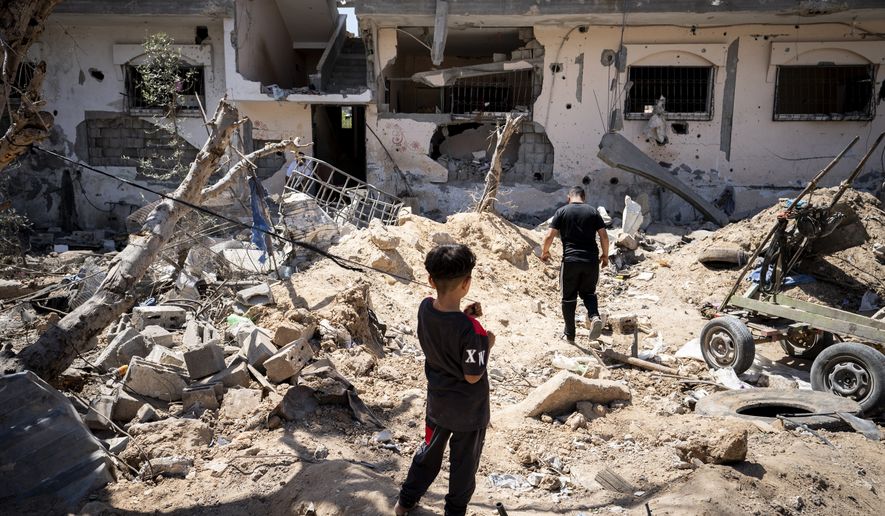As U.S. Secretary of State Antony Blinken continued his diplomatic mission to secure a ceasefire between Israel and Hamas, the militant group that rules Gaza’s 2 million people, ordinary Israelis and Palestinians faced the consequences of another outbreak of violence in a never-ending conflict.
More than 200 Palestinians, including dozens of children, were killed by Israel’s air bombardment directed at the Hamas tunnel network. At least 12 Israelis were killed by Hamas rocket attacks. Gaza’s impoverished infrastructure was devastated during the 11 days of combat.
And the underlying causes of the fourth war since Hamas, which the U.S. considers a terrorist organization, took over Gaza in 2007 were left unresolved, as were the historic grievances between two peoples whose national aspirations are tied to the same piece of earth. The immediate cause, Israel’s attempts to evict Palestinian families from East Jerusalem, invoked memories of the nakba, which is Arabic for catastrophe.
In 1948, the year celebrated in Israel as the founding of the Jewish state, hundreds of thousands of Palestinians fled or were expelled by Israeli forces from the territory that would become the state of Israel, to this day a point of intense contention.
The latest episode of the History As It Happens podcast examines the relevance of this history to today’s events. The decades-old battle over Jerusalem, for instance, is based on a legal structure that disadvantages Palestinians living under military occupation. Israeli law permits Jews to reclaim property that they or their families owned prior to the division of the city after 1948, but Palestinians cannot claim such rights to property restoration.
“The Palestinians have been forced the leave their homes for decades,” said Hesham Youssef, a former diplomat in Egypt’s foreign ministry who spent years mediating the Israeli-Palestinian conflict, among other disputes. “This is always a reminder of how they suffered.”
“Any time you are dealing with the dynamics in Jerusalem, it is a flashpoint in the conflict,” said Lucy Kurtzer-Ellenbogen, a former State Department specialist.
“This was coming after rising tensions around the al-Aqsa mosque… coming as well with the timing of Ramadan right on the precipice of what is commemorated as nakba day, many describe what they are seeing in Sheikh Jarrah as an ongoing nakba,” she said.
Both Mr. Youssef and Ms. Kurtzer-Ellenbogen are involved in the peace process through their work at the U.S. Institute of Peace. For more of their observations of the aftermath of the Gaza conflict, listen to this episode of History As It Happens.




